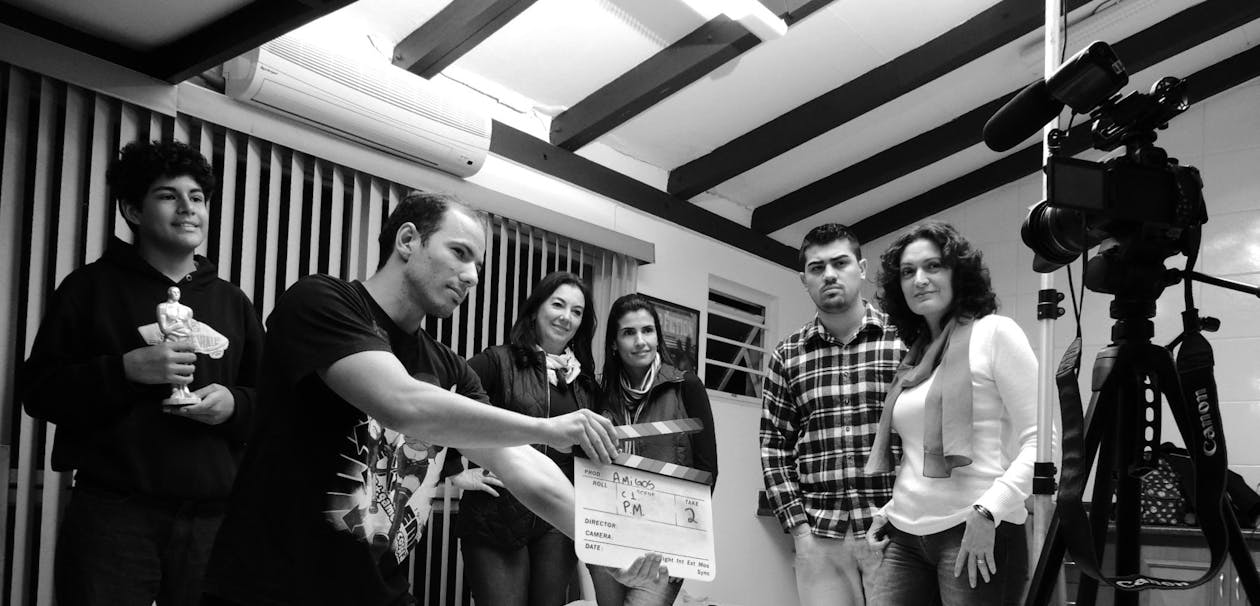Top Cons, Scams, and Flim-flams.
Moxie LaBouche from Your Brain on Facts joins me to talk about some of history’s top cons and scams. Trust me, there will be many more blogs and podcasts to come.
Listen to “Cons, Scams, and Flim-flams” on your podcast platform of choice:
Top 5 scams of the week
5. Salting

Salting a gold mine
How do you make a worthless mine a little more valuable? Take a shotgun, stuff it with gold dust, blast the walls, and bedazzle it with gold. That’s precisely what some Mine owners would do to turn a profit. But I can imagine that this confidence trick can only last for so long. Some buyers would ask to blast the mine before the sale’s closing. The huckster seller would sometimes stuff gold in the stick of dynamite. After the explosion, the mine shimmered with gold. — Source
1871 was the year of the Great Diamond Hoax.
Two cousins named Philip Arnold and John Slack returned to San Francisco with a bag full of diamonds. As a result, salivating investors wanted to know where they found the gems. So then, the cousins led the group of investors on a four-day goose chase through the wilderness until they finally arrived at a vast field with brilliant gems. Cha-ching! But when geologists studied the diamonds, they quickly discovered that this diamond-filled field was an elaborate con. It turns out the cousins purchased chat diamonds for about $35,000 and scattered them around the ground.
Salting the tip jar

Have you ever noticed the jar full of money at your favorite coffee shop or on the bar counter? Do you feel like a jerk when you don’t drop in a few dollars or coins? This technique of “salting the tip jar” works almost every time. Psychologists call it “social proof.” It turns out that humans want to mimic what other people do. For example, when someone claps, others clap too. And you even reluctantly stand during “the wave” at a baseball game. Social proof is used in advertising all the time. Nine out of ten dentists can’t be wrong, right?
4. Vanity publications and awards schemes

Do you want to be famous and successful? It’s easy. All you have to do is hand over your money. But unfortunately, scammers and con artists have cooked up schemes to pray on your vanity and need for acceptance and recognition throughout history.
Vanity press
Trying to get your book published can seem impossible. But there’s a sure-fire way of getting your book out there. Scammers know that desperate writers will do almost anything to get their books printed. Vanity publishers make their money from publishers, not readers purchasing books. Therefore, they have no financial interest in promoting the book, leaving the author with a financial burden.
2022 Golden Globes controversy
Vanity awards are pay-to-play awards given to the highest bidder. Did you know that NBC dropped the Golden Globes broadcast in 2022? Instead, the awards results were posted live on Twitter. Not only is the Hollywood Foreign Press Association accused of not having a single black voter, but they’re also accused of taking bribes from studios, production companies, and publicists. Winning a Golden Globe award can equate millions of dollars in box office earnings and elevate an actor’s career. Since the scandal broke out, the Hollywood Foreign Press Association announced new rules and added new members of color. — source
3. Fake casting agent scam

A well-connected casting director or agent can instantly make you a celebrity. However, one thing a casting agent will never do is charge you. Most casting agents make money only when you do—typically about 10%. A real casting agent will never guarantee work and will not make you take their classes. Oftentimes, scammers don’t really care if you have prior modeling or acting experience. Finally, you should never feel rushed or pressured into doing something you don’t feel comfortable with.
Does your child want to be a Disney Channel Star?
There is no fast track to Hollywood. If you hear or watch an ad that says, “Does your child want to be a Disney Channel Star? Auditions are being held this weekend. Call some number and book your slot.”— It’s a scam. Most of these so-called agencies charge an exorbitant amount of money and have no affiliation with Disney or Nickelodeon.
2. Mystery shopper scam

What if you could get paid for shopping? If it’s too good to be true, it probably is. Secret Shopper programs are real, but scammers are using the opportunity to take your money. Legitimate mystery shopper programs will never require you to pay an advance fee. You should be wary of money orders requesting to deposit money into your checking account.
News clip from secret shopper scam
Vera Couturier spent $200 buying groceries at Walmart with money she thought was from a secret shopper job. Instead, the scam involved a complex list of instructions. “Go buy three $500 gift cards at Walmart, one for $130, one $14 cashiers check which I was to make out to the American Cancer Society, and I got to keep $350,” In the end, Vera was able to recover most of her lost money.
1. Rickrolling
And the top scam of the week is the infamous Rick Roll. Everyone has been Rick Rolled but not everyone knows the origins of this classic bait and switch scam. The premise is simple. A person thinks they’re watching one video when Rick Astley’s “Never Going to Give You Up” unexpectedly plays instead.
But did you know that this classic prank has a more sinister origin story? The meme grew out of a similar bait-and-switch trick called “duck rolling” that was popular on the 4chan. 4chan is an anonymous website littered with child pornography, celebrity nude photo leaks, cyberbullying, and much more despicable content.
Listen to “Cons, Scams, and Flim-flams” on your podcast platform of choice:
Special Thanks to
Kellette Elliott for the custom collage artwork

PRETEND Podcast – PRETEND AMERICAN by @kelletteworks
